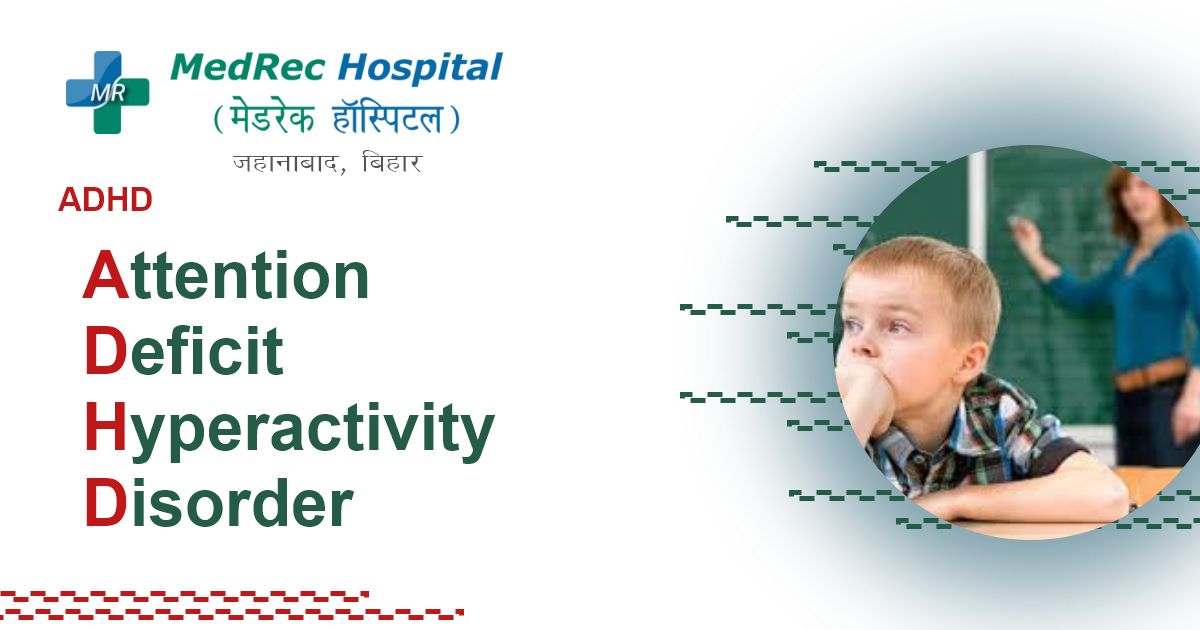
ADHD : An attention deficit syndrome for both adults and children
861
Adult attention-deficit/hyperactivity disorder (ADHD) is a mental health condition that entails a number of ongoing issues, including impulsivity, hyperactivity, and difficulties paying attention. Low self-esteem, shaky relationships, poor career or academic performance, and other issues might result from adult ADHD.
Early childhood is when the symptoms initially manifest, despite the fact that adult ADHD has a name for it. Sometimes a patient's ADHD is not recognized or diagnosed until they are an adult. Adult ADHD symptoms may not be as visible as those in children. Adults may have less hyperactivity, but they may still suffer from impulsivity, restlessness, and focus issues.
Treatment for adult ADHD is comparable to that for ADHD in children. Medication, psychological counseling (psychotherapy), and treatment for any mental health issues are all included in adult ADHD treatment and for disorders that coexist with ADHD.
Causes
Even though the exact cause of ADHD is unknown, research is continually being done. The following factors might have a role in the development of ADHD:
Genetics. Studies have revealed that ADHD, which can run in families, may have a genetic component.
Environment. Other environmental variables, like exposure to lead as a youngster, may also raise the risk.
Issues with the development. Central nervous system medical issues during critical periods of development could be a factor.
How to check if you have ADHD?
The symptoms of ADHD are present in almost everyone at some time in their lives. You probably do not have ADHD if your issues are new or have only sporadically happened in the past. ADHD can only be identified when symptoms are severe and interfere with multiple aspects of your life. These persistent and inconvenient symptoms have roots in early infancy.
As certain symptoms of ADHD are similar to those of other diseases, such as anxiety or mood disorders, diagnosing ADHD in adults can be challenging. Additionally, many individuals with ADHD also suffer from at least one other mental illness, such as anxiety or depression.
If any of the symptoms consistently interfere with your life, then please consult your doctor to determine whether you may have ADHD.
Different medical professionals can recognize ADHD and supervise its treatment. Look for a provider who has experience and training in providing care for adults with ADHD.
Risk Factors
ADHD risk might rise if:
- You have family relations who have ADHD or another type of mental illness.
- During pregnancy, your mother took drugs, alcohol, or took both.
- You were exposed to environmental contaminants as a youngster, such as lead, which is mostly found in paint and pipes in older structures.
- You were born too soon (premature birth)
Symptoms
While some individuals with ADHD continue to experience severe symptoms that impair everyday functioning, some people with ADHD experience fewer symptoms as they age. The basic characteristics of ADHD in adults may include trouble focusing, impulsivity, and restlessness. Mild to severe symptoms are possible.
Many people with ADHD are not even aware of their condition; they only know that simple chores might be difficult for them. The inability of adults with ADHD to prioritize tasks and focus might cause them to miss deadlines, call off meetings, and ignore social activities. The inability to restrain impulses can cause a variety of behaviors, such as impatience when driving in traffic or in line, as well as mood swings and angry outbursts.
Adult ADHD signs might show themselves as:
- Impulsiveness
- Issues with prioritization and disorganization
- Having trouble managing your time
- Having trouble focusing on one job at a time
- Excessive motion or agitation
- Faulty planning
- Low tolerance for frustration
- Frequently changing moods
- Difficulties completing assignments
- Quick temper
- Difficulty managing stress
Treatments
Adult ADHD is often treated with medication, instruction, skill development, and psychological counseling. The best course of action is frequently a variation of these. Despite not curing ADHD, these medications can help control many of its symptoms. In order to determine what treatment best suits you, it can take some time.
Medications
Discuss the advantages and disadvantages of any drugs with your doctor.
The most often recommended medications for ADHD tend to be stimulants, such as those containing methylphenidate or amphetamine, while other drugs may also be administered. The levels of brain chemicals known as neurotransmitters seem to be increased and balanced by stimulants.
Several antidepressants, including bupropion, and the non-stimulant atomoxetine are additional medications used to treat ADHD. Antidepressants and atomoxetine function more slowly than stimulants, however, if you have health issues that prevent you from taking stimulants or if they have significant negative effects, they could be suitable alternatives.
Finding the proper drug and dosage for you may take some time because they differ for each individual. Inform your doctor of any negative effects.
Psychological guidance
Psychological counseling (psychotherapy), information on the illness, and success-enhancing learning techniques are typically included in counseling for adult ADHD.
You could benefit from psychotherapy if you want to:
- Boost your organizing and time management abilities.
- Learn to control your impulsiveness.
- Improve your problem-solving abilities
- Accept prior academic, professional, or social failures
- Boost your confidence
- Improve the relationships you have with your friends, family, and in the workplace.
- Create techniques for managing your anger
Complications of ADHD
ADHD may make your life challenging. ADHD is associated with:
- Poor performance at job or school
- Unemployment
- Financial difficulties
- Misuse of alcohol or other drugs resulting in legal issues
- Recurring car accidents or other mishaps
- Unstable connections
- Unhealthy bodily and mental state
For further information please access the following resources:
Emergency : +91 89686 77907
Front Desk : +91 98018 79584
Page last reviewed: Mar 3, 2023
Next review due: Mar 3, 2025







.jpg)
.jpg)
.jpg)
.jpg)
.jpg)
.jpg)